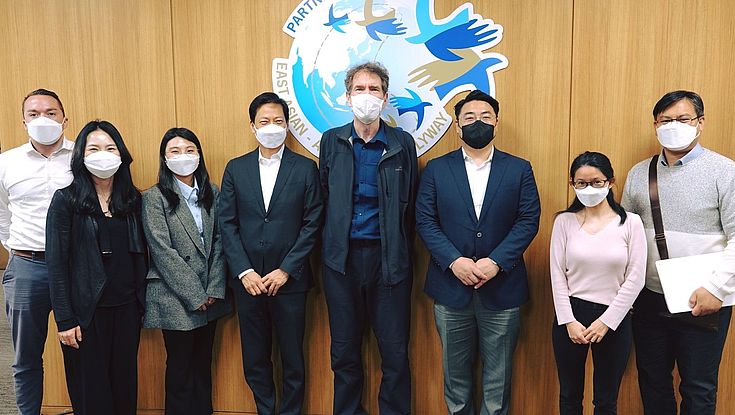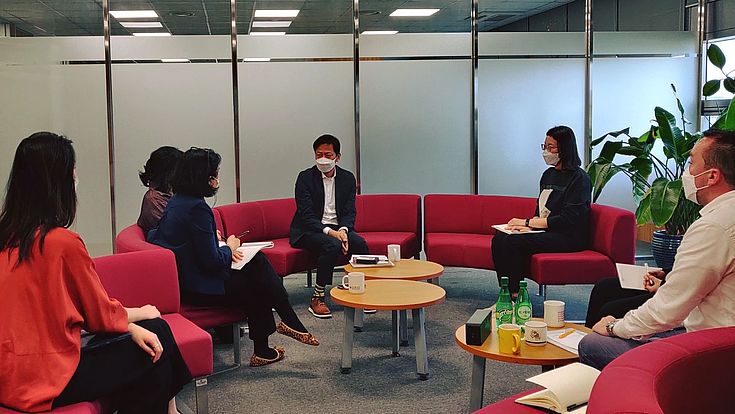Meetings
Project Discussions in Songdo
The day started with meetings at the Green Climate Fund (GCF). GCF was established by 194 governments to limit or reduce greenhouse gas emissions in developing countries, and to help vulnerable societies adapt to the unavoidable impacts of climate change. For more than 5 years HSF promotes an engagement of North Korea in the fund. Although a National Designated Authority was established in North Korea, there hasn´t been any project yet to foster the capacity of actors in the country to strengthen readiness to react to climate change using funds by GCF. The meeting gave an update on the status of North Koreas involvement in the fund, and on the impact of Covid-19 that basically ceased any direct cooperation of international actors and the country.

The meeting was followed by exchanges of HSF with representatives of the East Asian – Australasian Flyway Partnership (EAAFP) and the Ramsar Regional Center – East Asia. Topics included the development of e-learning materials on wetland conservation as a tool to continue the enhancement of capacity in countries in Northeast Asia, while practical trainings are impossible due to remaining travel restrictions in the region. Afterwards the meetings continued online and was joined by a representative of the International Union for the Conservation of Nature (IUCN). Main topic was an upcoming online webinar by the Working Group on the Conservation of the Yellow/West Sea Intertidal and Associated Coastal Wetlands. The group, organized by the EAAFP Secretariat, the IUCN Asia Office and RRC-EA, meet regularly and focuses on the conservation of wetlands adjacent to South Korea, North Korea and China. The webinar aims to development a joint inventory of the status of migratory birds in the Yellow / West Sea.

A final meeting was held with officials of the East and North-East Asia office of the North-East Asian Subregional Programme for Environmental Cooperation (NEASPEC) of the United Nations Economic and Social Commission for Asia and the Pacific (UNESCAP). HSF and UNESCPAP cooperate for almost 10 years on projects related to the Tumen River Delta. While Rason in North Korea designated the Rason Migratory Bird Reserve as a Ramsar Site of International Importance, it is envisaged to promote the idea for the adjacent wetlands in China and Russia as well. The meeting updated participants about the developments in the region and steps further for transboundary conservation in the area.
